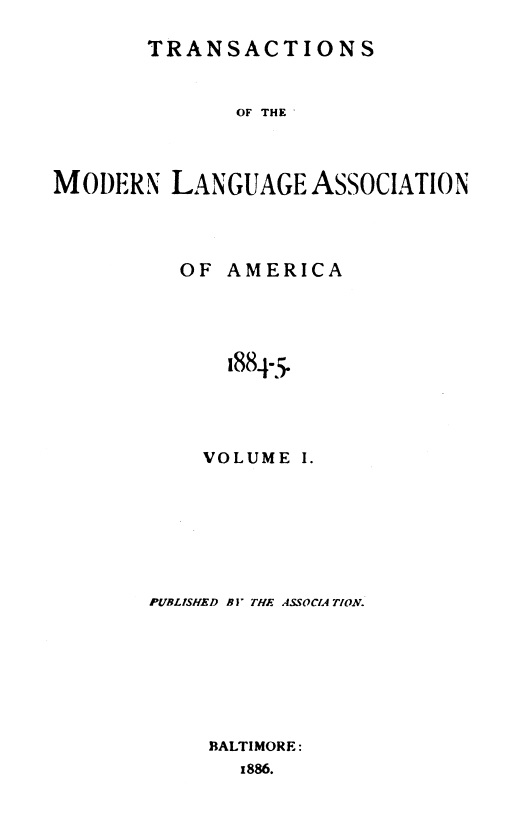Article contents
The Aims and Methods of Collegiate Instruction in Modern Languages
Published online by Cambridge University Press: 11 February 2021
Extract
It is evident that the study of the modern languages is to occupy a larger place in education in this country than ever before. The intercourse of people with people, political, social and literary is becoming constantly more intimate and we may anticipate in the future a more cosmopolitan spirit in the relation of nations. The arbitration of differences, arid friendly consultation in questions of disputed rights bring into a union of sympathy and genial interest states which have hitherto stood apart. Science has brought nations into immediate and personal connection, making the intellectual progress of one the possession of the other, while commerce and the facility of an interchange of citizenship unite them by mutual interests. These tendencies are separate from any questions touching the usefulness of the study of modern languages as a method of discipline and the culture which is to be obtained from contemporary literatures. They indicate indisputably certain new demands on education which must be met: they are facts patent to the observer as well as the scholar. Instruction in our colleges must take, if not a new, at least a changed direction from the enlarged intercourse of nations. We are brought to ask the question, not what has the past to give us, but what contribution has the living thought of each nation to make to its neighbor, what results of study, what intellectual discoveries, what special gifts from national tendencies and traits has each to impart. The very nearness and sympathy of nations politically causes each to present problems which every student of contemporary thought must investigate. These facts carry their own weight apart from any literary considerations. The question of a cosmopolitan spirit in literature, or of a world-literature is not involved in these views of the growing importance of the study of modern languages. We might urge with great imperativeness the necessity to every scholar, to every educated man, of a knowledge of the literature of Europe of the present day, no literature now stands alone but affects every other literature, and the subtle thought of one nation colors the intellectual life of every other. Without then touching upon the relative value or the proportionate time which should be devoted to the classics and modern languages, we are met by these facts which emphasize the position which modern languages must assume in every carefully adjusted college curriculum. Conceding then the importance of linguistic study, the question arises, what considerations are of force in determining the order and methods of linguistic study in our schools and colleges.
- Type
- Research Article
- Information
- Transactions of the Modern Language Association of America , Volume 1: Transactions 1884-1885 , 1885 , pp. 25 - 36
- Copyright
- Copyright © Modern Language Association of America, 1885
- 1
- Cited by


